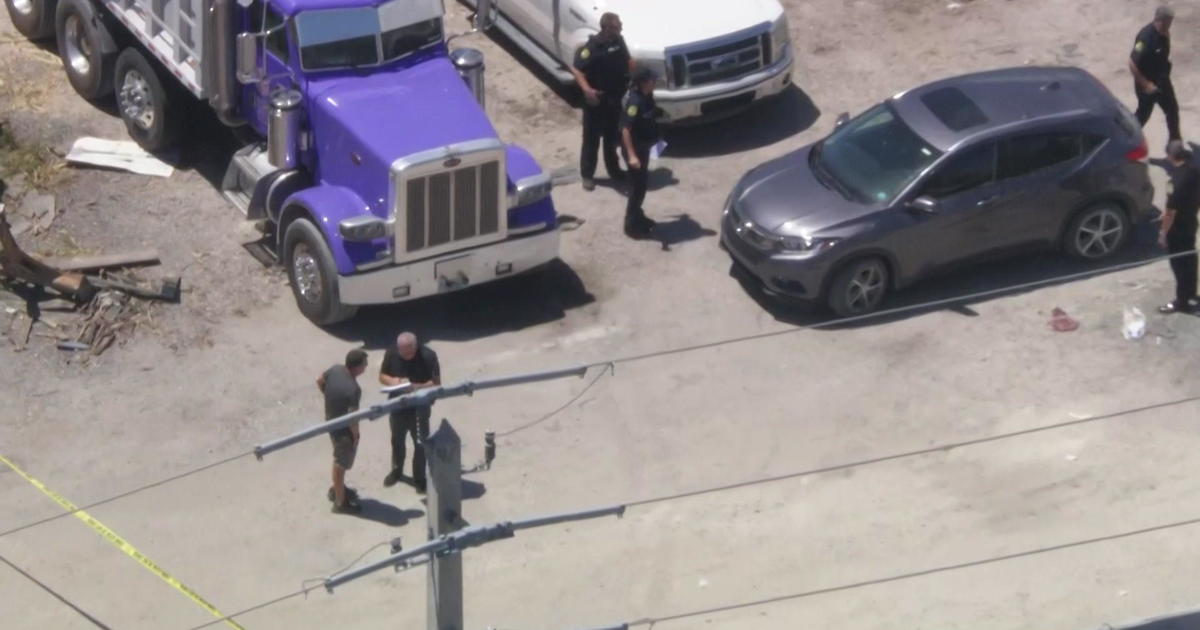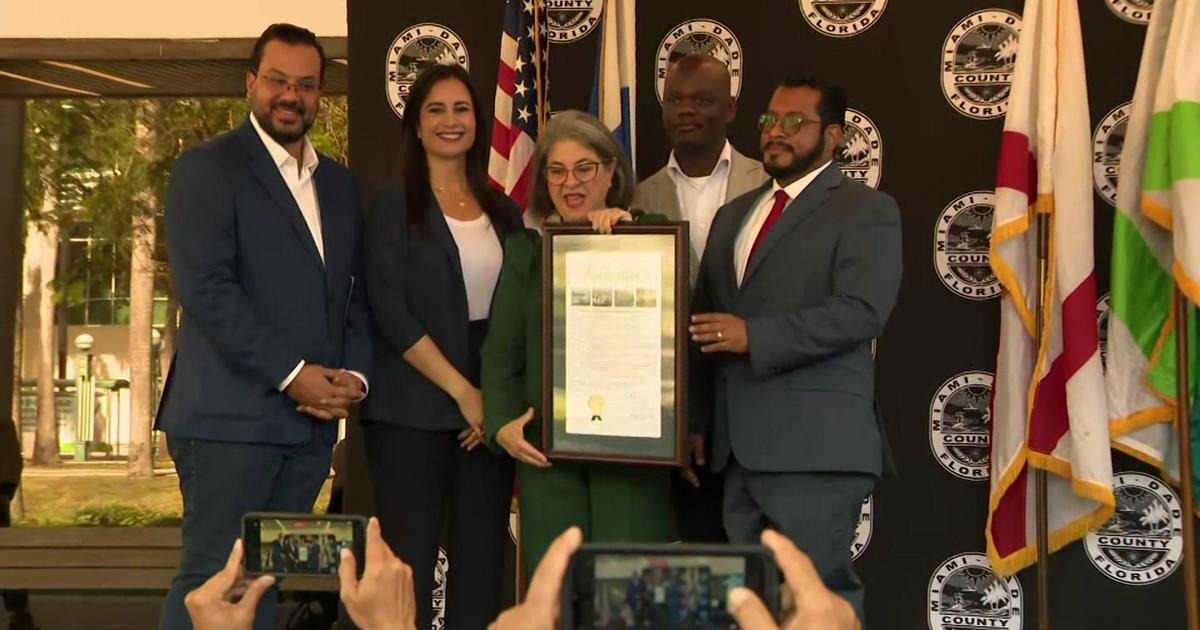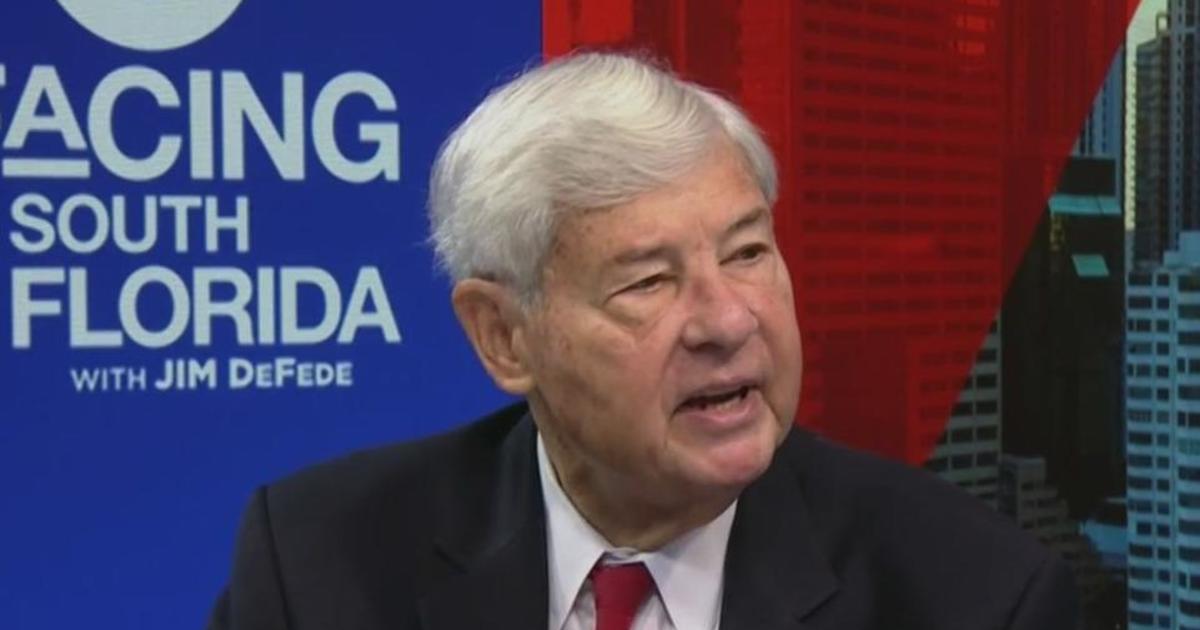Livestock "On The Moove" From South Florida Ports
WEST MIAMI-DADE (CBSMiami) – There's a lot more leaving South Florida ports than just cruise ships: exporters say the area's ports are seeing a large increase in the number of Florida livestock setting sail.
Before pigs can fly out of MIA and cattle cars can set sail from both ports, however, the animals have to spend some quality time at a South Florida quarantine facility.
Renee Strickland owns Strickland Ranch & Exporters and is one of the folks ready to move 'em on out.
"A huge load of cattle heading across the ocean to a far away country for breeding...or to become a great steak," Strickland explained to CBS4's Brian Andrews.
"It ain't as easy as it looks," she cautioned.
Strickland said moving beef is big business.
"It's huge. We ship over 800,000 heads of calves a year out of the state of Florida," Strickland said.
"We've got great cattle here in Florida. We are one of the largest producers in the country."
There's a huge demand for beef and dairy cattle in Middle Eastern countries, and for pigs in Asia.
"Miami is considered the gateway to the Caribbean, South America and Central America. The Europe market is growing here…the Middle East…Asia. So it's a growing market," explained Tony Alessandrini of Themes Farms.
Strickland, a rancher from Central Florida, decided to try her hand at cattle exporting when the recession hit. She had to do more than raise cattle: she needed to sell them herself and learned exporting is a risky business.
"You can make some good money and you can lose a lot of money in this business," Strickland warned.
While a lot can go right, a lot can go wrong: weather, bureaucracy…and humans.
For example, what if a trucker doesn't show up to move the cattle and the ship has to wait?
"All of a sudden, to the tune of $15,000 a day, you pay extra because it had to stay another day for your cattle to get there," Strickland said.
She added that most of her business starts with email from Asia, the Middle East, or some other far away place with a reqeust for her to go find someone a specific type of cow.
"They'll come over, select them, make sure they like what I've picked for them. Then, I handle all of the logistics from the time they bought those cattle all the way to where they get to their farm in whatever country they are in," Strickland said.
She works out of a cattle quarantine facility in western Miami-Dade.
Some countries require cattle shipments to be separated from other animals for 30 days before they're shipped. They have to get a final inspection and, sometimes, blood work.
"We get a nice set of USDA health papers. Those are very important; they travel with the cattle," Strickland said.
"All types of animals pass through the facility on their way out of the country. We see everything…from camels to llamas to zebras, to porcupines, to cattle," she added.
Alessandrini said this business has taken him everywhere.
"Yeah, I've been all over the world," he said.
"The very first time I ever got on an airplane, I got on a plane with horses."
Strickland said exporting livestock is her dream job.
"I'm dealing with animals and livestock, which is what I like. I'm dealing with people all over the world. The phone rings, I never know what country it's going to be. It's always interesting and I can truely say I have friends all around the world," she said.
Miami-Dade is the number one county in the state for international trade traffic. Broward comes in fifth and foreign trade accounts for more than half a million jobs statewide.



